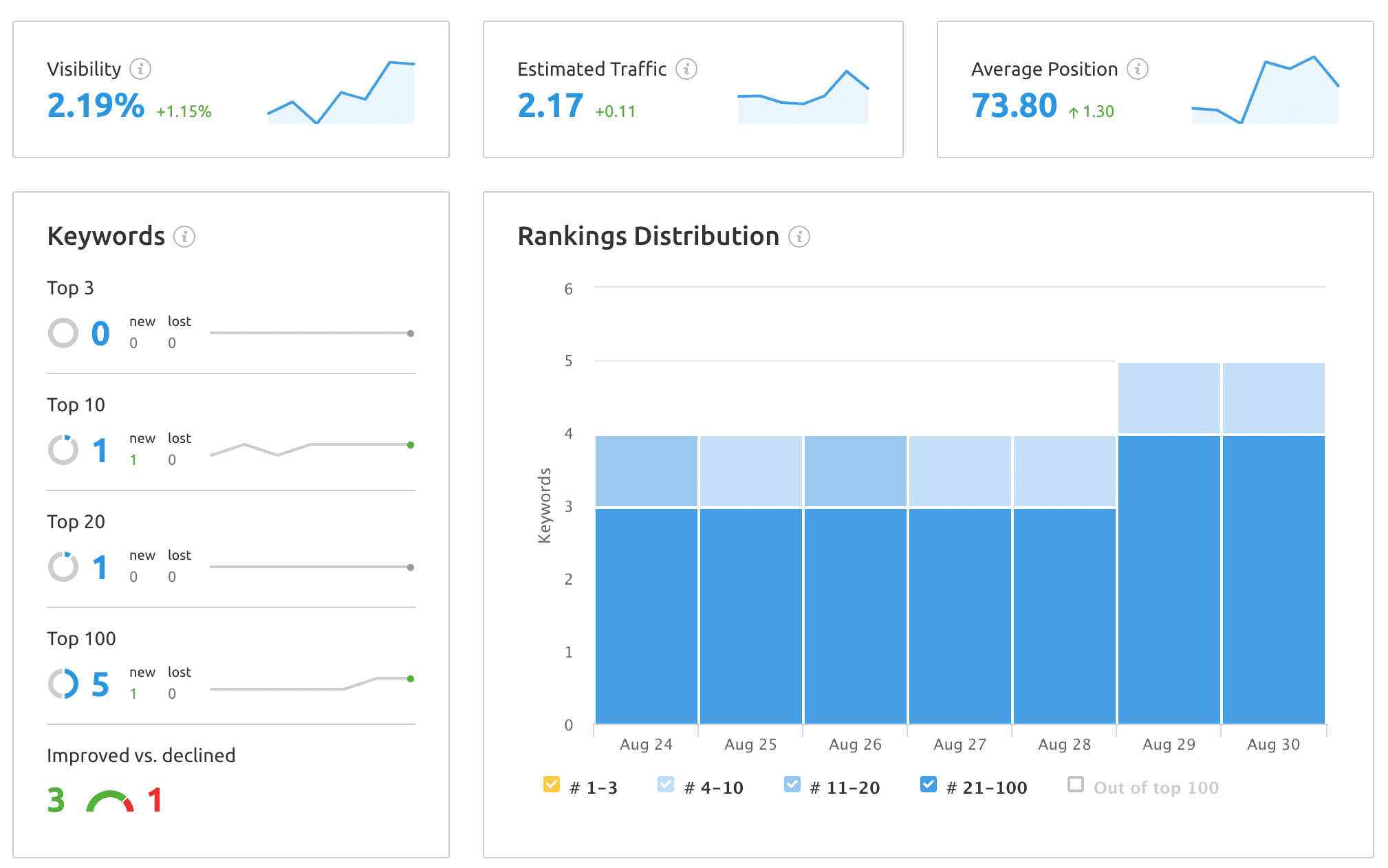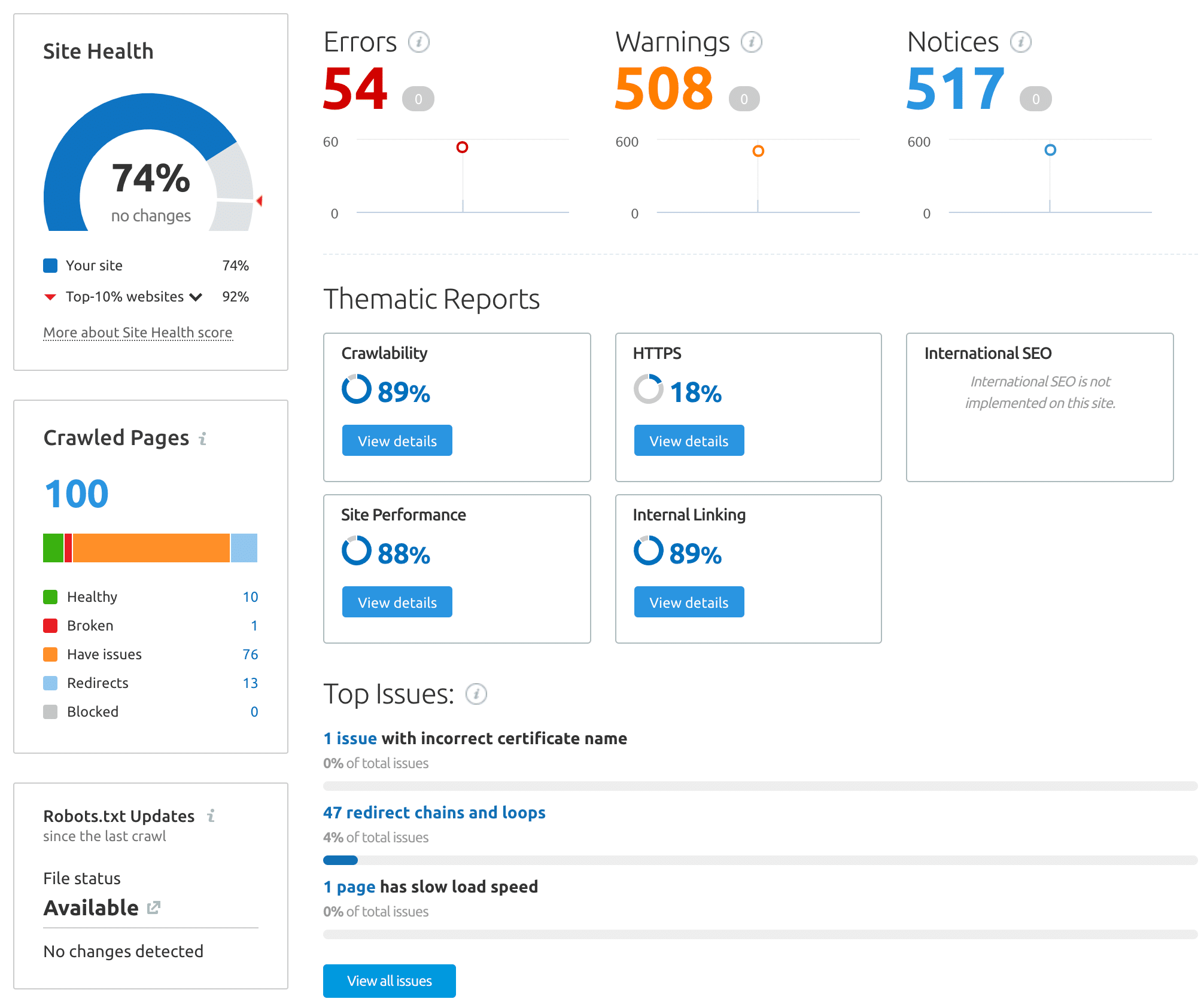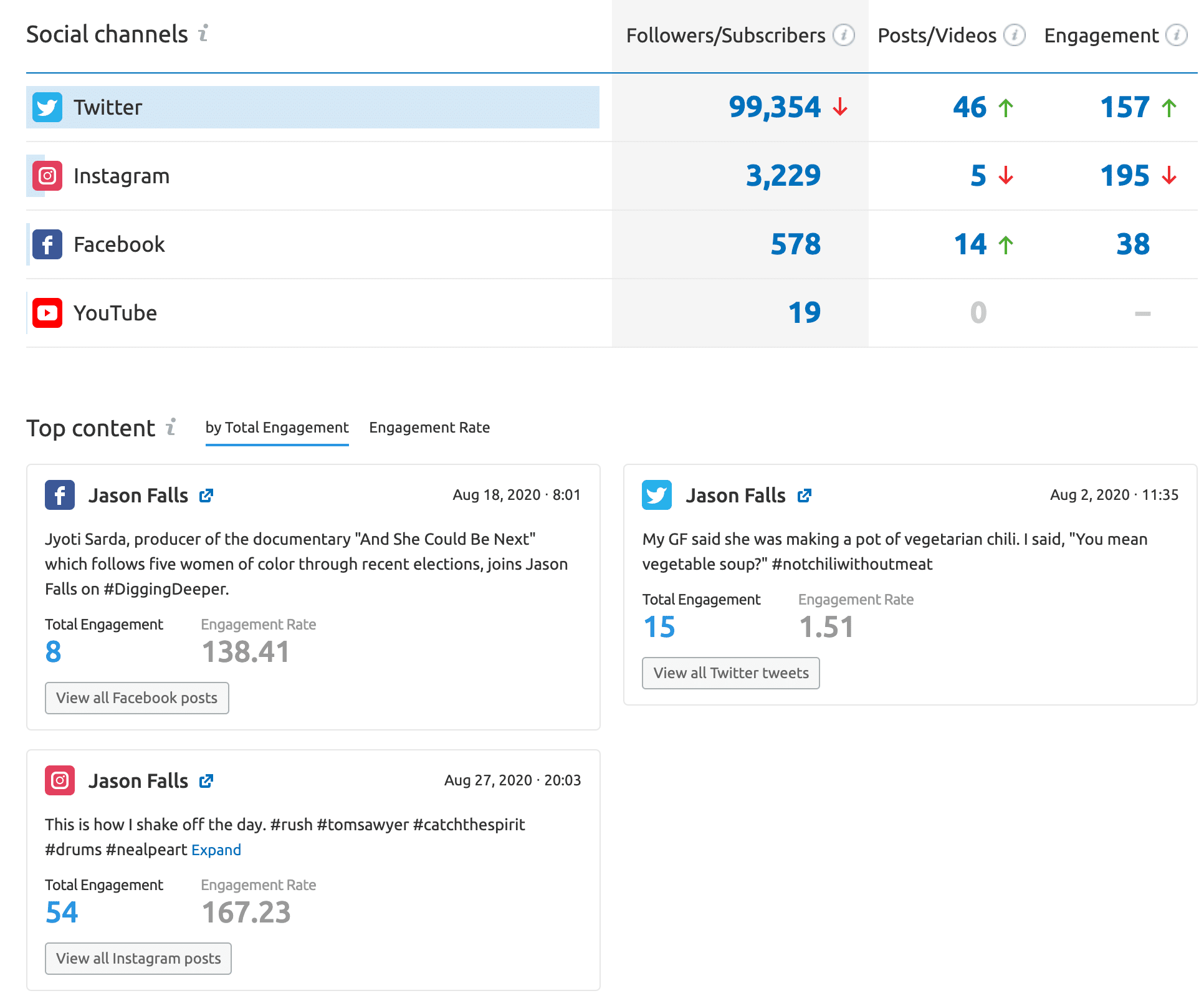I’ve never considered myself an SEO expert. But I do have to manage search engine optimization for clients and use SEO tools on a daily basis. As a writer, I also have made it a point to understand SEO copywriting, too.
I’m often asked questions about SEO and SEO tools and am happy to share what I know or think about the topics. Asked recently what my favorite SEO tools were, I thought I would share here.
Types of SEO Tools
The first thing to know about the landscape of tools in the search space is that different tools do different things well. MOZ is almost an industry standard SEO campaign management tool, but it best tracks keywords you tell it to track. It’s not great at surfacing all the ones you rank for whether you plug them into the list or not.
AHREFs is good, too. I like its ability to track competitors, but the data it presents can be misleading. It only reports organic traffic from search, rather than source data to report a guess at the actual traffic your competitor’s website has.
It’s also very backlink focused and doesn’t surface some important metrics well. Search visibility (times you appear in search results) is an example.
SpyFu is an interesting platform that I’ve tried, but didn’t bring anything to the table others did, so I wound up dropping it from my arsenal.
Some, like AHREFs, have nice tracking for your paid campaigns, and even those of your competitors. Still others don’t, or charge extra for them.
The SEO Tool So Good, I Became an Affiliate
I use a variety of tools for different clients and different purposes. But the one that is so good I decided I needed to be an affiliate is SEM Rush.
And no, it has nothing to do with the fact I let loose by head banging to Tom Sawyer.
SEM Rush allows me to monitor everything from my backlinks to social media channel health, and website issues to pay-per-click ads. It even gives me a handy dashboard — plain, but useful — to see all the areas it tracks at a glance.
For this website, I like to see how my traffic is fairing, but also how it ranks for the keywords I want to rank for. I’ve been focusing a lot of energy lately on keywords around influencer marketing to lay a foundation of organic search traffic ahead of my book launch. Here I can easily see my site has increasing visibility and two of my keywords have moved up in rankings.
One click and I’m in a position tracking panel to get more specific information on those keywords.
Then I can bop over to the backlink audits and link building panels to see what suggestions the tool has for me and where opportunities to build more links lie.

Because I know site performance is critical for the search engines to trust JasonFalls.com enough to send traffic to, I also pay a lot of attention to the site audit. This tells me if pages are loading slow, certain pages are flipping crawler issues and what I need to fix to optimize better.
Then I can see how my social networks are performing. While I spend a lot of time in them each day I don’t always pull back and look at follower trends and such. SEM Rush helps me know when I could be doing something better on Twitter or Facebook to get more people to my site, or enhance their visit based on user behavior.
SEM Rush also has the ability to manage your social media content from right inside the tool. I use other software for that, but it’s nice to know I have a back up if I need it.
Perhaps the most unexpected feature SEM Rush offers is the brand monitoring panel. This is a social listening feature that is unheard of in SEO tools. Again, like social media management, I’m probably going to use a separate software to accomplish that task. But having an extra set of searches out there to double check mentions of your brand can’t hurt.
The Nitty Gritty on SEM Rush
Of all the SEO tools I’ve used, SEM Rush is the one with the most complete package of features. The extra bells and whistles of social management and social listening notwithstanding, it has everything I need to manage search for my website.
My favorite thing about SEM Rush is the competitive information it surfaces. The Domain Analytics feature gives me competitor’s domain authority, organic and paid traffic trends, keyword rankings, suggested other competitors and beyond. When I’m trying to devise an attack to get my site, or a client’s site, better positioned for organic search, I can find all my information right here.
And here’s the real kicker — You can use all of these features on a basic level for free! So you can test drive it before having to pay anything!
Even when you do need to add more keywords or sites or whatever, the lower end of the pricing spectrum is $99 per month. Even if you don’t spend money on pay-per-click ads or even derive direct revenue from your website, the intel you glean from the tool is well worth the investment. Even for a solopreneur monitoring the health of a single website — like me — it’s an investment I would make over and over again.
Disclosure
As I indicated above, I love this tool so much, I decided to break a long-standing personal preference against most affiliate programs and become an affiliate for them. The links to SEM Rush here will pay me a commission if you sign up via them. I really only do that on Amazon links, so you should understand this is an exception for me.
Even if you go through a different path, however, I highly recommend you at least give the tool a test run.





